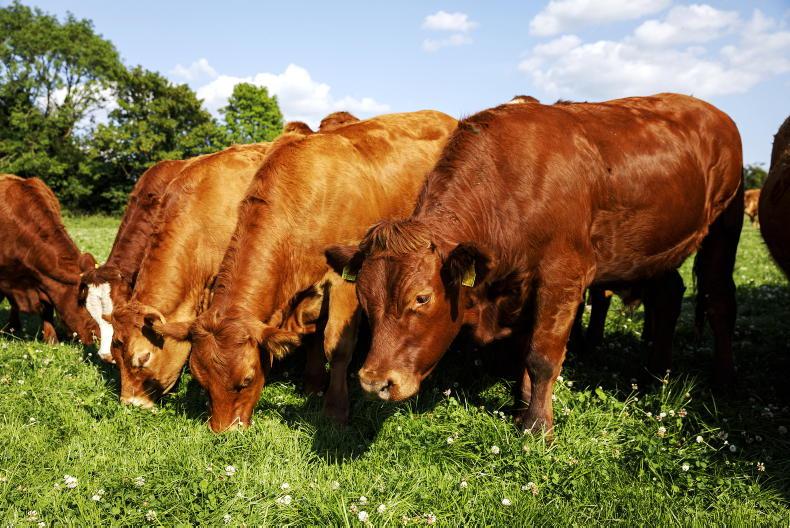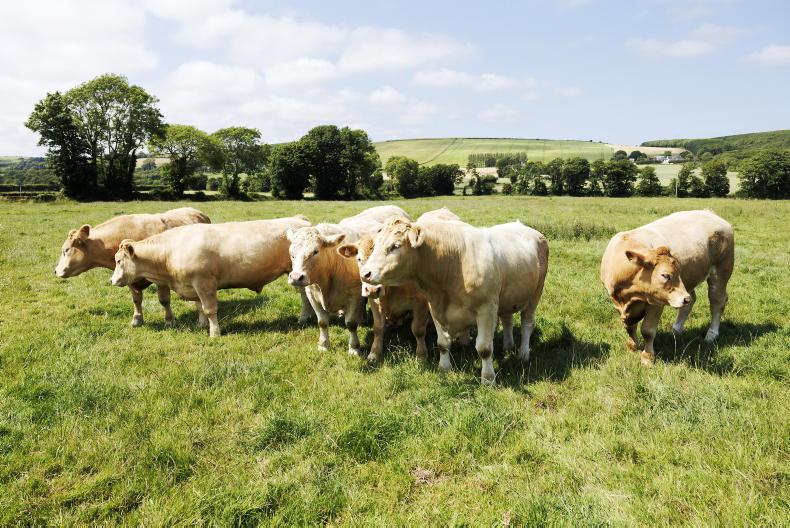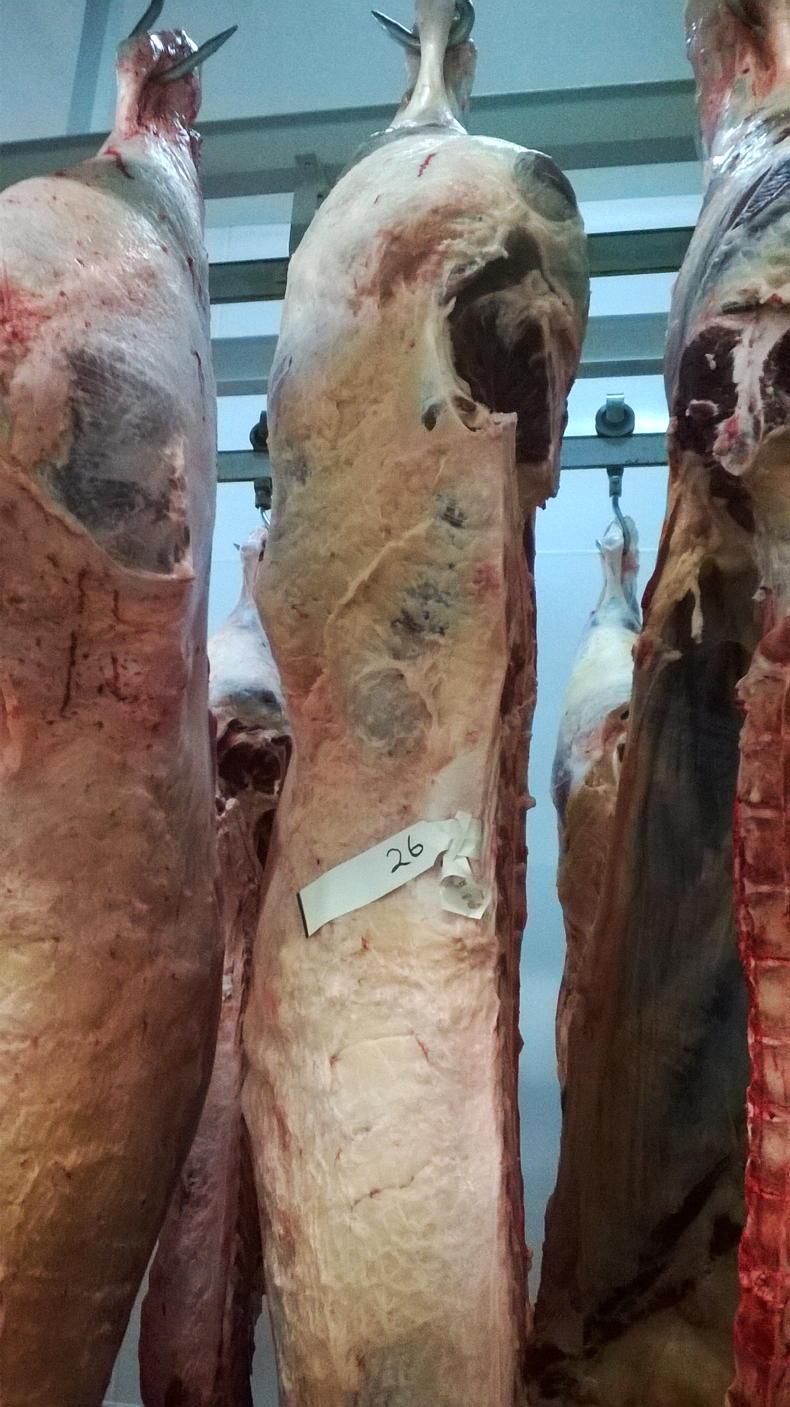There is widespread disappointment that instead of a national food ombudsman as promised in the programme for Government, the Minister for Agriculture has brought forward a bill to establish an Office for Fairness and Transparency in the Agri-Food Supply Chain (OFT).
Incidentally, the UK previously had an OFT – the office for fair trading which was broadly similar to the Irish Consumer and Competition Protection Commission.
Despite disappointment, there is unlikely to be widespread protests at the downgrading of the food ombudsman.
When prices are acceptable as they are at the moment, because produce is still being sold with 2021 input costs, farmers just want to farm and get on with their work.
Unfortunately, proper attention to structural issues around the agri food industry only come to the fore at the time of crisis and right now it is the cost of fertiliser, bale wrap and diesel, as well as harvest and fodder prospects for the 2022 season, that are foremost in farmers' minds.
Whether it is an ombudsman or an OFT is a lower priority at this moment.
Ombudsman lite
While the OFT may not be an ombudsman, it nevertheless does have extensive investigative powers and sanctions proposed.
What needs to happen now is that farm organisations analyse the proposed bill and ensure amendments are tabled that give it the maximum number of teeth to allow it to carry out its function as a scrutineer of how the more powerful processing industry manages its relationship with its farmer suppliers.
One area that should be addressed is that a requirement for factory financial performance date should be made public, as is the case with Irish dairy processors and many of the top meat companies globally.
It is a very low-margin business where large profits are earned by high throughput, not high margins on small volumes
The reason for this is to allow farmers see exactly the level of profitability in meat processing beyond the farm gate.
It is a very low-margin business where large profits are earned by high throughput, not high margins on small volumes.
While transparency is in the title of the proposed legislation, the detail in the text refers to analysis of information in the public domain.
Knowledge necessary for farmer understanding
The knowledge gap for farmers on what happens from the point they drop an animal off at the factory to seeing a cut of meat in a shop or on a restaurant plate is the basis for believing that fortunes are earned in between.
There is no doubt that meat processors are profitable and, judging by published results internationally, 2021 was a good year for factories.
Yet, when this is converted back to cents per kilo on the volume of product processed, it is small.
If Irish meat factories started by publishing audited accounts that were open to analysis, it would be a big first step in building a better farmer-factory relationship.
Ideally, it should go further, as is the case in the US, with full sales and stock data to give a complete insight on the trade.
Regulation and enforcement doesn’t build relationships, even when it is mutually dependent, as it is between farmers and factories.
Factories are few in number and big in size, yet cannot function without farmer suppliers of raw material.
It falls to them to take the lead in relationship building and that is best done not at the time of a market crisis. If that was done successfully, whether it was an ombudsman or an OFT wouldn’t really matter.
Read more
OFT is small step, not a giant leap for farmers
Record meat factory profits in 2021
There is widespread disappointment that instead of a national food ombudsman as promised in the programme for Government, the Minister for Agriculture has brought forward a bill to establish an Office for Fairness and Transparency in the Agri-Food Supply Chain (OFT).
Incidentally, the UK previously had an OFT – the office for fair trading which was broadly similar to the Irish Consumer and Competition Protection Commission.
Despite disappointment, there is unlikely to be widespread protests at the downgrading of the food ombudsman.
When prices are acceptable as they are at the moment, because produce is still being sold with 2021 input costs, farmers just want to farm and get on with their work.
Unfortunately, proper attention to structural issues around the agri food industry only come to the fore at the time of crisis and right now it is the cost of fertiliser, bale wrap and diesel, as well as harvest and fodder prospects for the 2022 season, that are foremost in farmers' minds.
Whether it is an ombudsman or an OFT is a lower priority at this moment.
Ombudsman lite
While the OFT may not be an ombudsman, it nevertheless does have extensive investigative powers and sanctions proposed.
What needs to happen now is that farm organisations analyse the proposed bill and ensure amendments are tabled that give it the maximum number of teeth to allow it to carry out its function as a scrutineer of how the more powerful processing industry manages its relationship with its farmer suppliers.
One area that should be addressed is that a requirement for factory financial performance date should be made public, as is the case with Irish dairy processors and many of the top meat companies globally.
It is a very low-margin business where large profits are earned by high throughput, not high margins on small volumes
The reason for this is to allow farmers see exactly the level of profitability in meat processing beyond the farm gate.
It is a very low-margin business where large profits are earned by high throughput, not high margins on small volumes.
While transparency is in the title of the proposed legislation, the detail in the text refers to analysis of information in the public domain.
Knowledge necessary for farmer understanding
The knowledge gap for farmers on what happens from the point they drop an animal off at the factory to seeing a cut of meat in a shop or on a restaurant plate is the basis for believing that fortunes are earned in between.
There is no doubt that meat processors are profitable and, judging by published results internationally, 2021 was a good year for factories.
Yet, when this is converted back to cents per kilo on the volume of product processed, it is small.
If Irish meat factories started by publishing audited accounts that were open to analysis, it would be a big first step in building a better farmer-factory relationship.
Ideally, it should go further, as is the case in the US, with full sales and stock data to give a complete insight on the trade.
Regulation and enforcement doesn’t build relationships, even when it is mutually dependent, as it is between farmers and factories.
Factories are few in number and big in size, yet cannot function without farmer suppliers of raw material.
It falls to them to take the lead in relationship building and that is best done not at the time of a market crisis. If that was done successfully, whether it was an ombudsman or an OFT wouldn’t really matter.
Read more
OFT is small step, not a giant leap for farmers
Record meat factory profits in 2021









SHARING OPTIONS